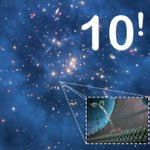Saturday, 9/6/2008
Yesterday, before a meeting at work, we were pondering a difficult question:
Why do men have nipples? (After all, they don't need them, right??)
My 6-year old had asked this question a few days ago, so I thought I'd ask someone who knows.
Turns out, nobody in the room had a good answer (or wasn't volunteering one).
Unfortunately, I can't repeat my boy's attempt at an explanation ;-)
So I looked a bit and found something on the web. Here's a short answer:
http://wiki.answers.com/Q/Why_do_men_have_nipples
This one I found a bit more satisfying:
http://evolution-101.blogspot.com/2006/07/why-do-men-have-nipples.html
I've been intrigued by simple questions that many people (often myself included) cannot answer.
For example, why is it colder in the mountains than at lower altitudes?
Yeah, something with air-pressure .. but what exactly??
Or what came first: the chicken or the egg?
What a coincidence that just today I would listen to this talk:
http://www.ted.com/index.php/talks/jonathan_drori_on_what_we_think_we_know.html
He has some further simple questions, but of a different kind: These are questions that we think we know how to answer, but are often wrong.
(Well, we know from recent elections and not so recent ones, that a (near) majority of people voting for a guy, doesn't imply the voters are right in their attempt to find the best choice...)
The same TED podcast session I watched today also had this interesting talk:
http://www.ted.com/index.php/talks/paul_rothemund_details_dna_folding.html
About 10 min into it, you'll see a photo of Deckard from "Blade Runner".
Another strange coincidence: I just watched Blade Runner yesterday!
When watching Blade Runner, even for the first time, it becomes clear that Rachel is a replicant.
What is much less clear is that Deckard might be one, too.
This never occurred to me (or the Deckard in the movie I guess), until much later.
And even more recently, I realized another level of interpretation and explanation.
Yesterday, before a meeting at work, we were pondering a difficult question:
Why do men have nipples? (After all, they don't need them, right??)
My 6-year old had asked this question a few days ago, so I thought I'd ask someone who knows.
Turns out, nobody in the room had a good answer (or wasn't volunteering one).
Unfortunately, I can't repeat my boy's attempt at an explanation ;-)
So I looked a bit and found something on the web. Here's a short answer:
http://wiki.answers.com/Q/Why_do_men_have_nipples
This one I found a bit more satisfying:
http://evolution-101.blogspot.com/2006/07/why-do-men-have-nipples.html
I've been intrigued by simple questions that many people (often myself included) cannot answer.
For example, why is it colder in the mountains than at lower altitudes?
Yeah, something with air-pressure .. but what exactly??
Or what came first: the chicken or the egg?
What a coincidence that just today I would listen to this talk:
http://www.ted.com/index.php/talks/jonathan_drori_on_what_we_think_we_know.html
He has some further simple questions, but of a different kind: These are questions that we think we know how to answer, but are often wrong.
(Well, we know from recent elections and not so recent ones, that a (near) majority of people voting for a guy, doesn't imply the voters are right in their attempt to find the best choice...)
The same TED podcast session I watched today also had this interesting talk:
http://www.ted.com/index.php/talks/paul_rothemund_details_dna_folding.html
About 10 min into it, you'll see a photo of Deckard from "Blade Runner".
Another strange coincidence: I just watched Blade Runner yesterday!
When watching Blade Runner, even for the first time, it becomes clear that Rachel is a replicant.
What is much less clear is that Deckard might be one, too.
This never occurred to me (or the Deckard in the movie I guess), until much later.
And even more recently, I realized another level of interpretation and explanation.

No comments:
Post a Comment